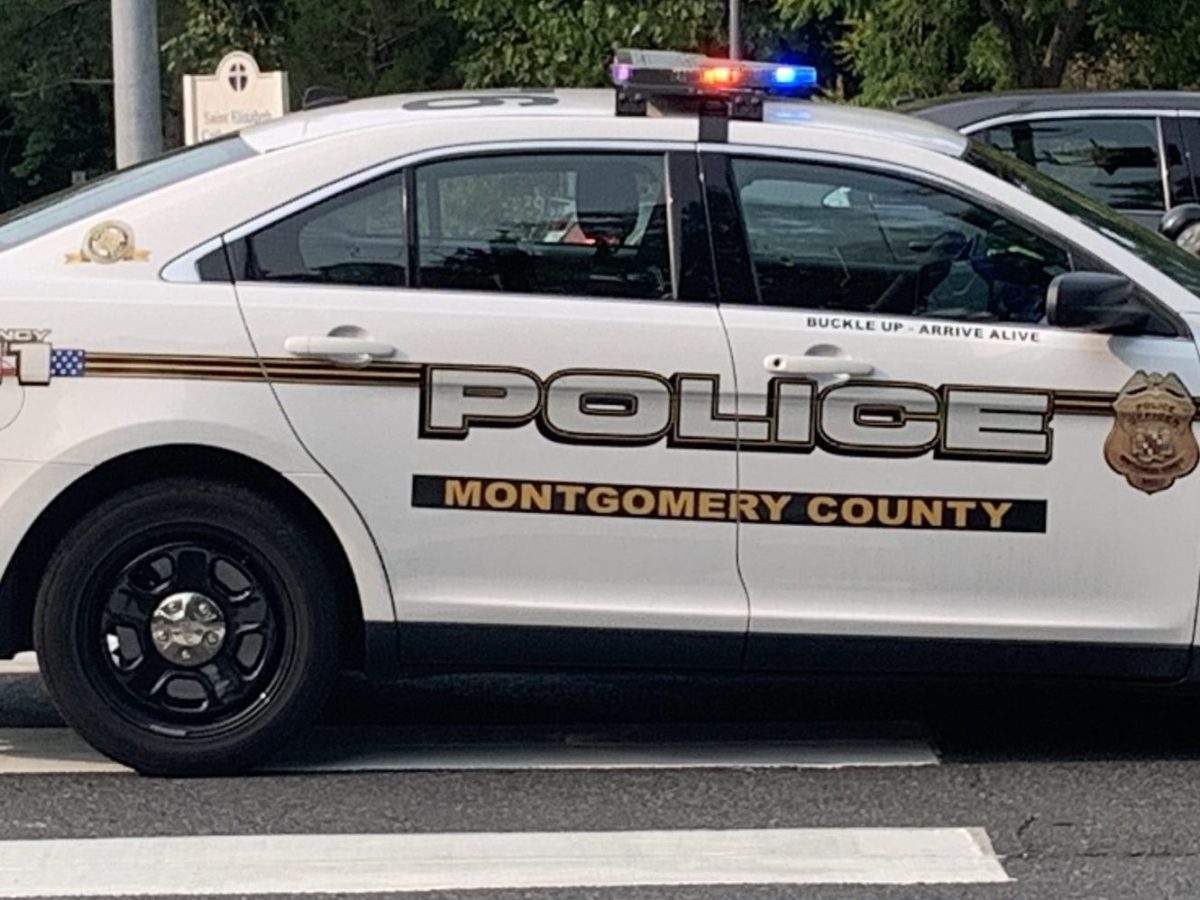Montgomery County Councilmember Will Jawando (D-At-large) is trying a second time to introduce legislation to limit some police searches in an effort to curb racial disparities. Maryland’s attorney general had determined that his previous effort, the STEP Act, conflicted with state law.
Jawando on Tuesday introduced the Freedom to Leave Act, which would prohibit consent searches of a motor vehicle or person by a police officer. A consent search is when a law enforcement officer searches an individual’s vehicle or person after obtaining verbal consent from the individual being searched.
At least two fellow councilmembers, Kristin Mink (D-Dist. 4) and Laurie-Anne Sayles (D-At-large), expressed support for the new effort. But the police union representing Montgomery County officers objects to the legislation, saying Jawando did not work with police officers to create it.
A 2021 Montgomery County Office of Legislative Oversight report showed that Black and Latino drivers are stopped at higher rates than white drivers for lower-level traffic violations, such as minor traffic violations, registration issues or equipment issues such as a broken headlight or taillight.
Jawando introduced the STEP Act in February 2023. The legislation would have limited the reasons that county police could stop motorists and pedestrians. If it had gone forward, a police officer would not be able to stop a motorist for driving with a headlight or taillight out; brake lights out; licenses, registration, or insurance not being up to date; having tinted windows; or other minor offenses. Officers would be allowed to pull motorists over if none of the headlights or taillights are working.
Those offenses could be considered secondary offenses, but not primary offenses—meaning that officers can write a ticket for the offenses, but that they cannot be the main reason officers pull someone over.
But Maryland Attorney General Anthony Brown wrote in a Sept. 15 opinion that state law designates the violations the bill would consider secondary offenses as primary offenses—and no local law can override the state’s designation.
However, Brown wrote, some parts of the original STEP Act do not conflict with state law. For example, a provision that would limit the reasons an officer can search a car would not be preempted by the Maryland Vehicle Law. This led to the revised Freedom to Leave Act.
Jawando withdrew the STEP Act on Tuesday in favor of the Freedom to Leave Act.
“Under the Fourth Amendment, you have the right to say no [to search and seizure],” Jawando said when introducing the bill. “However, many studies have shown that it is really not able to be exercised in most interactions because of the significant power imbalance that is created.”
Jawando said that according to county data, only one out of 205 motor vehicle traffic stop searches result in recovering contraband.
“This disproportionately impacts the Black community in particular and is often used as a tool to extend the traffic stops,” Jawando said during a virtual press conference Tuesday afternoon. “Any Black resident you’ll talk to… many of us have dealt with this and experienced the anger and the trauma and the lack of respect and dignity that can result from some of these interactions, feeling that you’ve done something wrong.”
Jawando has also shared in the past that he has had negative experiences with traffic stops.
Some community members spoke in support of the legislation during the press conference.
Chuck Williams, a Germantown resident and previous member of the county’s former Police Accountability Board, said the issue hits home. He said his son, who is Black, was once stopped by a county police officer because he didn’t use his turn signal while switching lanes. While he said his son admitted to the mistake, the officer insisted on searching his car.
“[My son] asked the question, ‘Why do you want to search my vehicle?’ The officer replied, ‘Based on the address on your license, that’s a pretty rough neighborhood.’ And that was it. No question or saying, ‘We suspect that you have this in your vehicle’ or whatever the case may be. Just based on our address,” Williams said. “This particular incident was not only an insult to myself and my family. But it was an insult to my community, both my geographic community as well as my cultural or ethnic community.”
But Lee Holland, president of the Fraternal Order of Police Lodge 35, which covers Montgomery County officers, said the union is urging the council to not pass the bill.
“Instead of partnering with law enforcement and finding ways for police officers in Montgomery County to combat the rising crime, Councilman Jawando has once again introduced legislation that will impair their ability to keep Montgomery County residents and officers safe particularly in the areas of illegal firearms and drugs,” Holland said in an email to MoCo360.
Mink voiced support for the legislation during the meeting. She was a previous co-sponsor of the STEP Act. She said she’s read studies that found that drivers are likely to feel pressured to comply with a search even if they’re aware of their Fourth Amendment rights.
“Even if the officer is completely calm and polite, even if they inform the person they have the right to refuse, we all have a natural inclination to comply with authority,” Mink said.
Sayles thanked Brown for his guidance as to what parts of the initial bill would not work with state law, and said the legislation was a good step forward.
“We must consider proposals that will benefit communities of color and put an end to discrimination and harassment especially when it comes to matters of public safety,” Sayles said.
Shiera Goff, a spokesperson for the Montgomery County Police Department, said the department would issue a statement once they had more information about the bill.
A public hearing on the legislation is scheduled for 1:30 p.m. at the Feb. 27 council meeting in Rockville. A vote is not yet scheduled.



